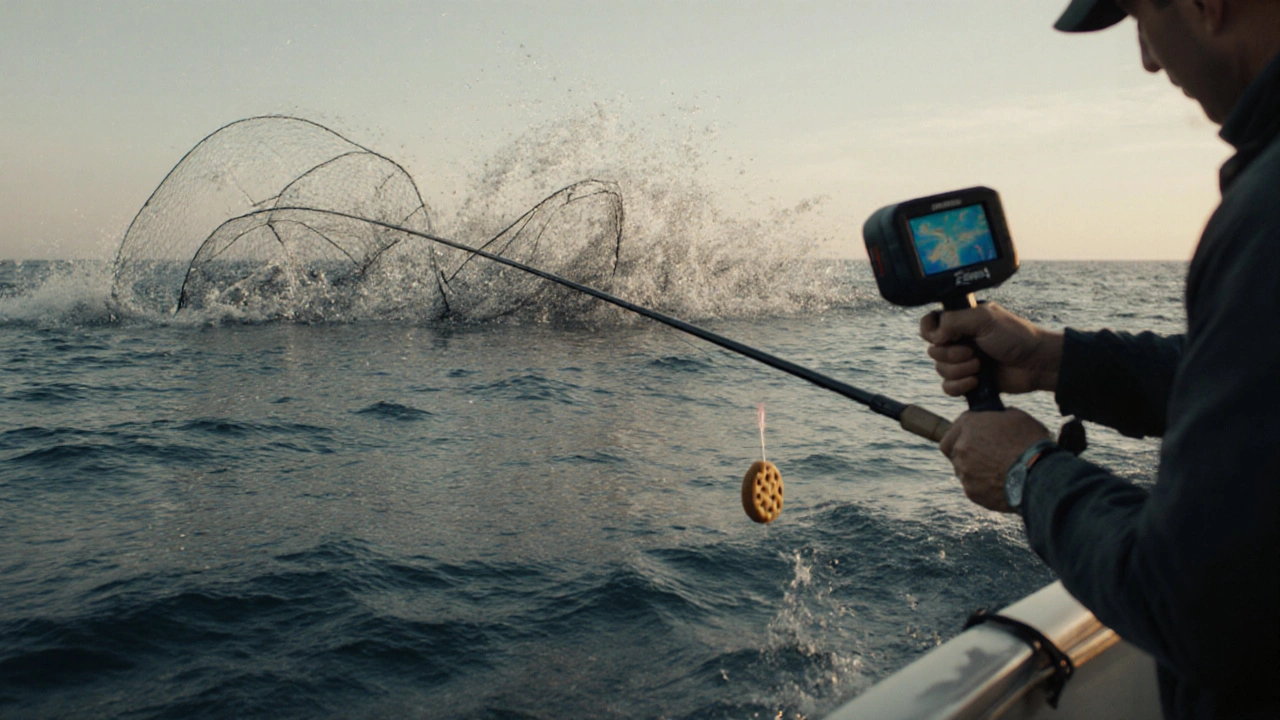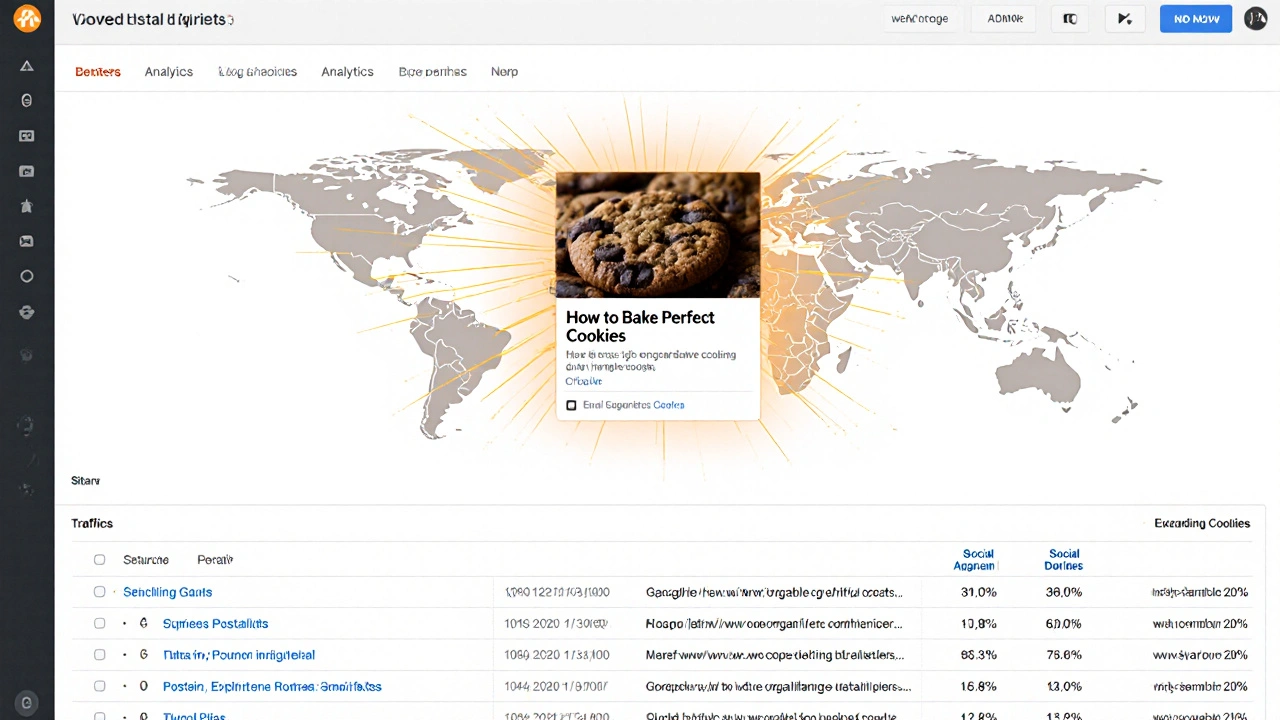Internet Marketing ROI Calculator
Marketing Channel Comparison
Compare the cost-effectiveness of traditional advertising versus internet marketing based on your business metrics. The article highlights that internet marketing has up to 62% lower cost per lead compared to traditional methods.
Back in 2005, a small bakery in Ohio could only reach customers within a 5-mile radius. Today, that same bakery can sell cookies to someone in Tokyo, London, or Lagos - all because of internet marketing. It’s not magic. It’s strategy, data, and tools working together to turn casual browsers into paying customers. And if you’re still thinking internet marketing is just posting on Facebook or running Google Ads, you’re missing the bigger picture.
What Internet Marketing Really Is (And What It Isn’t)
Internet marketing isn’t a single tactic. It’s the entire ecosystem of reaching people online to build trust, drive action, and grow revenue. It includes SEO, email campaigns, content marketing, paid ads, social media, influencer partnerships, and even chatbots that answer questions at 2 a.m. It’s not about shouting louder than everyone else. It’s about being found when someone is ready to buy.
Think of it like fishing. Traditional advertising is casting a huge net into the ocean and hoping something bites. Internet marketing is using sonar to find the exact spot where the fish are biting - then dropping a hook with the right bait right there. You’re not wasting time on people who aren’t interested. You’re focusing on those who already want what you offer.
The Tools That Make It Work
Internet marketing runs on a stack of tools that work together. You don’t need all of them, but you need the right mix.
- SEO (Search Engine Optimization): Getting your website to rank high on Google when someone searches for ‘best organic dog food’ or ‘affordable web design near me.’ It’s free traffic that keeps giving.
- Email Marketing: 95% of online shoppers say they’ve made a purchase because of a targeted email. It’s not dead - it’s smarter than ever.
- Content Marketing: Blog posts, videos, infographics - anything that answers a question before the customer even asks it. A single how-to guide can bring in thousands of visitors over months.
- Social Media Advertising: Facebook and Instagram ads let you target people by job title, income, interests, even the apps they use. You’re not just reaching an audience - you’re reaching the right person at the right time.
- Analytics Platforms: Google Analytics, Meta Pixel, Hotjar - these tools tell you who’s visiting, what they’re doing, and where they’re leaving. No guessing. Just data.
These aren’t optional extras. They’re the backbone of every successful online business in 2025.
Why It Outperforms Traditional Marketing
Remember TV commercials? You paid $50,000 for a 30-second spot, hoping a few thousand people saw it. Then you had no idea if anyone actually bought your product. Internet marketing fixes all that.
With internet marketing, you know exactly how much you’re spending per lead. You can test five different ad headlines in one day. You can pause a campaign that’s not working and shift budget to one that is. You can retarget someone who visited your site but didn’t buy - and remind them with a discount two hours later.
A study by HubSpot in 2024 showed that companies using integrated internet marketing strategies saw 2.8 times more leads than those relying on TV, radio, or print alone. And the cost per lead? Up to 62% lower.
It’s not about being everywhere. It’s about being precise.

Real Examples That Worked
Take a small SaaS company in Austin that built a free tool to help freelancers calculate taxes. They didn’t run ads. They wrote blog posts answering questions like ‘How do I deduct my home office?’ and ‘Do I need to pay quarterly taxes?’ Within six months, those posts ranked on page one of Google. They got 80,000 visitors. 12,000 signed up for their email list. And 3,200 became paying customers.
Or a local yoga studio in Portland that started posting 60-second TikTok videos of real clients doing beginner poses. No fancy lighting. No music. Just real people. Within three months, their class waitlist grew from 12 to 147. They didn’t spend a dollar on ads.
These aren’t outliers. They’re repeatable patterns. The common thread? They solved a real problem - and made it easy for people to find them.
The Hidden Pitfalls
Not everyone succeeds. Many businesses waste money on internet marketing because they skip the basics.
- Buying followers: Fake engagement looks good on paper but turns real customers away.
- Ignoring mobile users: Over 60% of searches happen on phones. If your site loads slow or looks broken on mobile, you’re losing sales before they even start.
- Not tracking results: If you don’t measure what works, you’re flying blind. You can’t improve what you don’t measure.
- Trying to be everywhere: Posting daily on Instagram, TikTok, LinkedIn, YouTube, and Pinterest? That’s not strategy - that’s burnout. Pick one or two channels where your audience actually is.
One client I worked with spent $15,000 on Google Ads in six months. They got 2,000 clicks. Only 12 conversions. Why? Their landing page was a mess. The offer wasn’t clear. They didn’t test anything. They just kept spending more. That’s not internet marketing. That’s throwing money at a wall.

Where to Start - Even If You Have Where to Start - Even If You Have $0
You don’t need a big budget. You need focus.
- Find one problem your ideal customer has. Write a 500-word blog post that solves it. Publish it on your website.
- Optimize it for one keyword. Use free tools like Ubersuggest or Google Keyword Planner.
- Share it on one social platform where your customers hang out - not all of them.
- Ask one person to read it and tell you if it helped.
- Wait. Track. Adjust.
That’s it. No fancy software. No agency. Just solving a problem and making it easy to find.
Most businesses fail not because they lack resources - they lack patience. Internet marketing builds momentum slowly. But once it starts, it compounds. A blog post from two years ago can still bring in leads today. An email list grows quietly. SEO rankings climb over time. It’s a long game - but the returns last.
The Future Is Personal
By 2026, 75% of all online interactions will be personalized using AI. That means customers won’t just see ads - they’ll see ads that know their name, their last purchase, their browsing history, and even their mood based on how long they linger on a page.
But here’s the catch: people hate being manipulated. The winners won’t be the ones using the most tech. They’ll be the ones using tech to be more human. A personalized email that says, ‘I noticed you left your cart. Here’s a 10% discount - no pressure,’ works better than a generic ‘BUY NOW’ banner.
Internet marketing isn’t about automation. It’s about connection. The tools are powerful. But the message still has to feel real.
Final Thought
The power of internet marketing isn’t in the tools. It’s in the mindset. It’s about listening more than selling. It’s about being useful before you’re promotional. It’s about building trust one honest interaction at a time.
If you’re reading this and thinking, ‘I don’t have time for this,’ ask yourself: Can you afford not to?
Is internet marketing still effective in 2025?
Yes - more than ever. With over 5.3 billion internet users worldwide, and 87% of consumers starting their buying journey online, internet marketing is the only way to reach modern customers. The tactics have evolved, but the core principle remains: meet people where they are, with what they need.
Do I need to hire an agency to do internet marketing?
Not at all. Many small businesses run successful campaigns on their own using free tools like Canva, Google Analytics, Mailchimp, and Meta Business Suite. You only need an agency if you’re scaling fast, lack time, or need specialized skills like paid ad optimization or advanced SEO. Start with DIY, then outsource only what you can’t handle.
How long does it take to see results from internet marketing?
It depends. Paid ads can bring traffic in hours. SEO takes 3-6 months to show solid results. Email lists grow slowly but deliver high ROI over time. Most businesses see their first real conversion within 60 days if they’re consistent. The key is patience and tracking - not speed.
What’s the biggest mistake people make with internet marketing?
Trying to do everything at once. Instead of focusing on one channel, one message, and one goal, they spread themselves too thin. A single well-executed email campaign beats five half-baked social posts. Quality over quantity always wins.
Can internet marketing work for local businesses?
Absolutely. In fact, local businesses benefit the most. Google Business Profile, local SEO, and geo-targeted Facebook ads can drive foot traffic and phone calls. A plumber in Chicago who ranks #1 for ‘emergency plumber near me’ can get 20+ calls a week - just from Google.




Write a comment